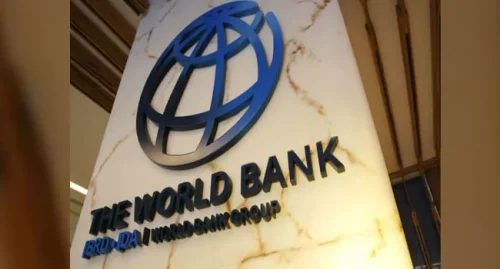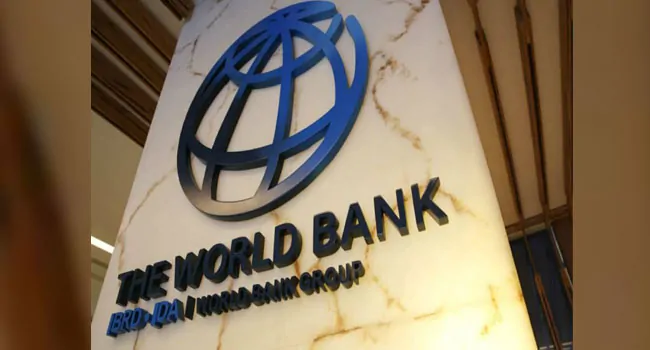Nigeria Gets World Bank $1.5 Billion For Subsidy Removal, Tax Bills

The World Bank has fully disbursed a $1.5bn loan to Nigeria following the Federal Government’s implementation of key reforms, including removing fuel subsidies and introducing comprehensive tax policies, The PUNCH reports.
The loan, part of the Reforms for Economic Stabilisation to Enable Transformation Development Policy Financing initiative, is among the fastest disbursements Nigeria has received with both tranches released in less than six months.
According to a World Bank document obtained by The PUNCH on Sunday, the loan was approved on June 13, 2024, with the first tranche of $750m disbursed on July 2, 2024.
The second tranche, tied to the fulfilment of specific economic reform conditions, was disbursed in November 2024.
This rapid disbursement contrasts with other loan programmes, which typically experience delays due to slow or partial implementation of conditions.
For more context, another loan of $750m was approved on the same day (June 13, 2024) for the Accelerating Resource Mobilisation Reforms Programme for Results project in Nigeria.
The PUNCH observed that the World Bank has only disbursed about $1.88m to Nigeria at the time of filing this story, which is less than one per cent of the total approved $750m for the ARMOR project.
The PUNCH further observed that the $1.5bn loan disbursed to Nigeria was structured in two tranches with different maturity periods.
The first tranche was a $750m credit from the International Development Association, featuring a 12-year maturity and a six-year grace period.
The second tranche, a $750m loan from the International Bank for Reconstruction and Development, has a 24-year repayment period with an 11-year grace period.
The World Bank document read, “This document summarises the progress made under the Reforms for Economic Stabilisation to Enable Transformation Development Policy Financing for the Federal Republic of Nigeria (Borrower or Recipient), which was approved by the Executive Directors on June 13, 2024.
“The DPF is a standalone operation comprised of two tranches: (1) first tranche comprising $750m credit from the International Development Association (Association) (Shorter Maturity Loan terms with 12-year maturity and grace period of 6 years, Credit No. 7567-NG); and (2) second tranche comprising $750m loan from the International Bank for Reconstruction and Development (Bank) (US dollar-denominated, commitment-linked loan with 24-year maturity and grace period of 11 years, Loan No.9683-NG).
“The Financing Agreement and Loan Agreement were signed and declared effective on June 19, 2024 and June 26, 2024, respectively. The first tranche was released on July 2, 2024.”
While the document itself did not clearly state when the disbursement for the second tranche was made, further findings by The PUNCH showed that Nigeria got a $750m disbursement from the World Bank in November.
According to the document seen by The PUNCH, a critical reform that unlocked the second tranche was the removal of fuel subsidies.
The World Bank commended the government for not only meeting the condition but exceeding expectations by fully deregulating the fuel market.
The document noted, “In terms of implementation, while the TRC [Tranche Release Conditions] formulation required introducing the change over a specified time-bound implementation period, the Borrower has moved ahead and made the change immediately, thereby overachieving the TRC in this respect.
“Effective October 2024, the price of PMS has been determined by the international market and the exchange rate set by the Central Bank of Nigeria.”
This move has allowed petrol prices to align with international market rates and exchange rates, effectively ending the implicit subsidies that had burdened public finances.
Fuel prices have increased more than fivefold since the reform process began in mid-2023, a change that has drawn both praise for its fiscal prudence and criticism for its impact on living costs.
In addition to removing fuel subsidies, the Federal Government introduced sweeping tax reforms aimed at improving revenue mobilisation.
The Nigeria Tax Bill 2024, submitted to the National Assembly, proposes a gradual increase in the Value Added Tax rate to 10 per cent by 2025, alongside measures to simplify tax compliance and expand input tax credits for businesses.
The document read, “The Borrower has successfully carried out the programme as outlined in the Letter of Development Policy, with progress along all areas supported by the DPF. Following the implementation of the reforms that constituted prior actions for the first tranche of the RESET DPF (disbursed on June 28, 2024), the Borrower continues to carry out the program as planned.
“The borrower has prepared and submitted to the National Assembly on October 3, 2024, a comprehensive package of tax reforms, which not only reform the VAT regime but also simplify tax policy laws and tax administration.
“Reforms have also been implemented to fully deregulate the fuel market, ensuring that retail prices are determined by market conditions and opening the sector to competition. The authorities are following through on their commitment to cease deficit monetization, relying instead on standard debt instruments to finance the deficit.”
There were three key conditions noted in the document, with the first being increasing net oil revenues.
For the first condition, the World Bank noted that there was a Presidential Executive Order that mandated that all fiscal transfers, including crude oil sales and gasoline imports, be executed at the prevailing market exchange rate, with Naira-based transactions starting in October 2024, effectively addressing implicit subsidies.
The second condition was to increase non-oil revenue, and in this regard, the government submitted a draft bill to the National Assembly proposing a VAT rate increase to 10 per cent in 2025, while also allowing input tax credits for capital and services.
The third condition is to ensure social protection delivery was strengthened, and the document noted the submission of an amendment bill mandating the use of the National Social Registry as the primary targeting tool for social investment programs.
The World Bank described the reforms as necessary for diversifying Nigeria’s revenue sources, given the country’s historically low tax-to-GDP ratio.
However, the tax bills have sparked controversy, with northern leaders arguing that the reforms could widen economic disparities between the north and the south.
The disbursement of the $1.5bn loan comes amidst widespread public dissent over the effects of the reforms.
The removal of fuel subsidies has led to soaring petrol prices, significantly increasing transportation and living costs.
Protests erupted in cities like Abuja, Kano, and Lagos, with citizens expressing frustration over rising economic hardships.
President Bola Tinubu and members of his cabinet defended the reforms, describing them as essential for Nigeria’s economic stability and growth.
Tinubu emphasised that the funds saved from the removal of subsidies would be redirected toward infrastructure development, social welfare, and economic diversification.
To mitigate the immediate impact of the reforms, the government has introduced relief measures, including direct cash transfers of N25,000 to 15 million vulnerable households.
However, only about four million households have benefited from this cash transfer programme, which is far below the target.
Also, efforts are underway to promote compressed natural gas as a cheaper alternative to petrol, with a target of converting over one million vehicles in three years to reduce transportation costs.
The World Bank praised the government’s swift and decisive actions, noting that Nigeria’s ability to meet the conditions for both tranches in record time reflects a strong commitment to economic transformation.
The global lender also acknowledged the government’s efforts in addressing structural inefficiencies, such as the high fiscal burden from subsidies and the challenges of revenue mobilisation, calling for sustained reforms.
Amid concerns over rising external debt and the debt service burden, the Federal Government, under the leadership of President Bola Tinubu, has secured loans worth $6.95bn from the World Bank in about 18 months.
The PUNCH earlier reported that the World Bank will decide on three major loan projects for Nigeria in 2025, totalling $1.65bn, as part of efforts to address critical developmental challenges in the country.
The loans, currently in the pipeline, will focus on internally displaced persons, education, and nutrition enhancement.
According to data from the external debt report released by the Debt Management Office, the World Bank’s share of Nigeria’s debt totals $16.32bn, with the majority owed to the International Development Association, which accounts for $16.32bn, which represents 38 per cent of Nigeria’s total external debt.
The International Bank for Reconstruction and Development, another arm of the World Bank, is owed $484.0m, or 1.13 per cent.
Source:- Punchng
